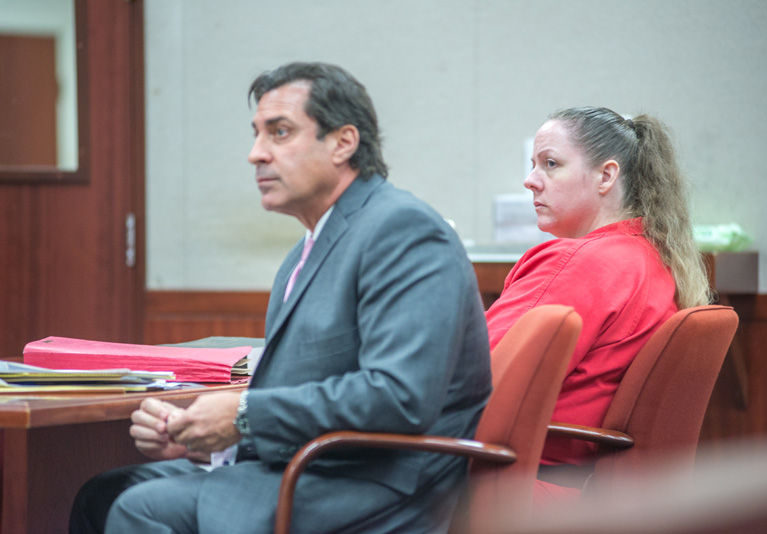
INDIAN RIVER COUNTY — The prosecution got off to a strong start Wednesday, the first day of the Gina Albrecht manslaughter trial, as one witness after another testified for the state.
In opening arguments, Bobby Guttridge — defense attorney for Albrecht who was charged with manslaughter after the death of her elderly charge-and-boyfriend George May — laid out his defense strategy.
“Keep an open mind. The government is trying to tell George May how to live his life. But when he was alive they couldn’t do that because he was competent and captain of his own ship,” Guttridge told jurors.
But May’s neurologist in late 2010, which was six months before Albrecht became May’s caregiver, told jurors a different story based on CAT scans, MRIs and clinical tests.
“George May was confused and not able to perform daily activities. He was hallucinating,” said neurologist Leslie Huszar, referring to examinations and extensive tests he completed on May at the end of 2010, six months before Albrecht came on the scene.
Under questioning from prosecutor David Dodd and Guttridge, Huszar continued, “We have evidence he had disease in his brain. There was strong evidence of a lack of judgment caused by dementia.”
Guttridge said that George May did exactly what he wanted. “He wanted to be with Gina. He lived on his own terms and died on his own terms, too.”
But witness after witness, including several law enforcement officers told a different story on the witness stand and presented evidence that appeared to show that Albrecht became May’s caregiver, drained his finances, then got him, despite his progressive dementia, to will his house, life insurance policy and van over to her, before leaving him to die of starvation.
“When he died, there was nothing left of George May’s but his house and life insurance policy. But for Gina to get control of these required his death,” prosecutor Lev Evans told the jury at the end of his opening argument.



